Viktoriya Veselovska is a producer at TAK TV, a television channel that, in 2006, became the first in the Mykolayiv region to broadcast 24/7, with over 80% of its content in the Ukrainian language. At that time, it was a challenge, – recalls Viktoriya, referring to the channel’s launch in a predominantly Russian-speaking Mykolayiv. But who could have predicted the challenges that local TV journalists would face in 2022?
The Russians began shelling Mykolayiv early on the morning of February 24. Later, the enemy came within a few kilometers of the city. Paratroopers were practically dropped into the heart of Mykolaiv. These were the scariest days of the war.
– I understood that I couldn’t stay in an occupied area given my professional activities and my stance on everything Russia does, – says Viktoriya. – So, the threat of occupation was probably scarier for me than the threat of shelling.
But she decided to stay in Mykolayiv nonetheless. Overcoming shock and avoiding panic and chaos from uncertainty, Viktoriya turned to camouflage net weaving. She calls it her salvation.
– To regain my composure, I needed a practical task because I couldn’t work mentally, – says the TV producer. – I realized that I should start with some hands-on work. In Mykolayiv, there’s a volunteer group called ‘Kikimory’ that has been making camouflage nets since 2014. A friend suggested, ‘Listen, they need help there.’ ‘I’m not sure,’ I replied, ‘that I can weave quickly, but I can cut these long fabric strips, which can be wound onto the net.’ I must say that two days of cutting fabric and weaving nets brought me back to my senses. I even got into a normal routine.
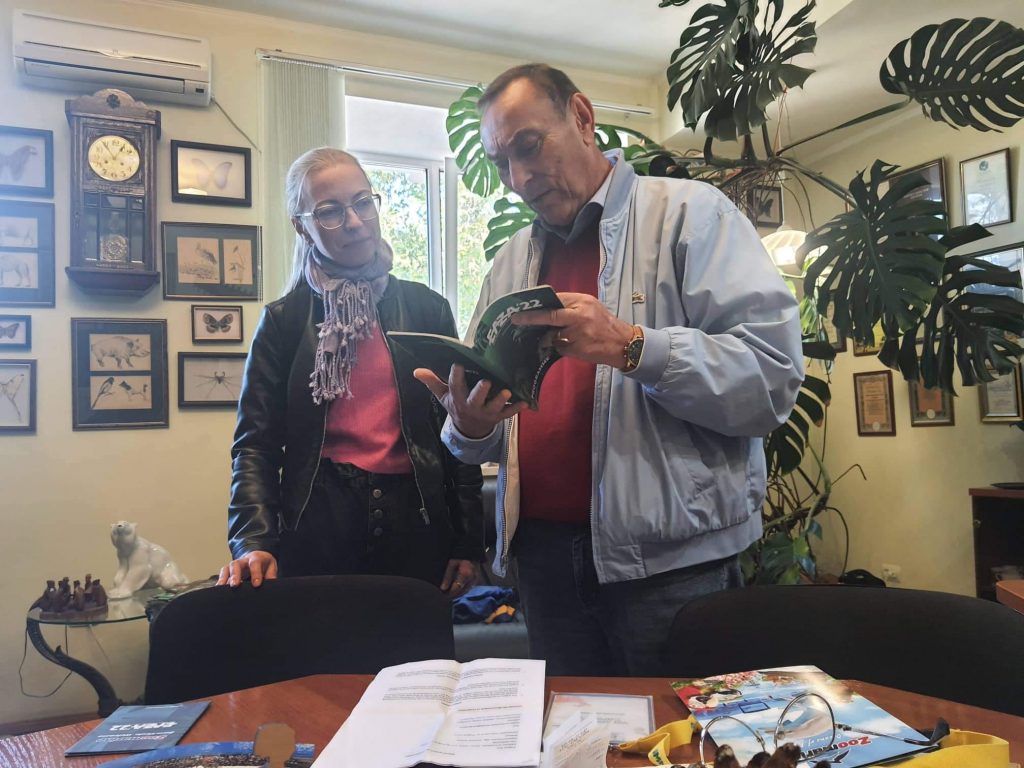
Amid the full-scale war, the creative team at TAK TV, like many regional media outlets, had to adapt. With the advertising market in decline and staff leaving the city, they shifted their focus to online platforms like YouTube, Telegram, and Facebook. Initially, they shared timely and informative content and later produced fresh material, including documentaries completed during the conflict. This included one for the National Academy of Educational Sciences of Ukraine’s anniversary and another covering the Ukrainian-Polish forum (in collaboration with the National Academy of Educational Sciences of Ukraine).
– As the situation with shooting in the city remained unclear, I decided to focus on the film, working on the script, – recalls Viktoriya. – And I gradually got back into a normal routine. By the end of March and the beginning of April, we started going out for shoots and creating television content.
The channel’s policy always prioritized the safety of journalists, valuing human life above all else. As a result, journalists were not dispatched to areas prone to shelling but primarily worked in safer parts of the city center. Their safety was further reinforced when the National Union of Journalists of Ukraine provided them with bulletproof vests. Even with these measures, they refrained from taking unnecessary risks. Given that some personnel lacked experience in covering events in conflict zones, they transitioned to humanitarian topics. This included reporting on the conditions of the zoo, the functioning of the children’s hospital, and more.
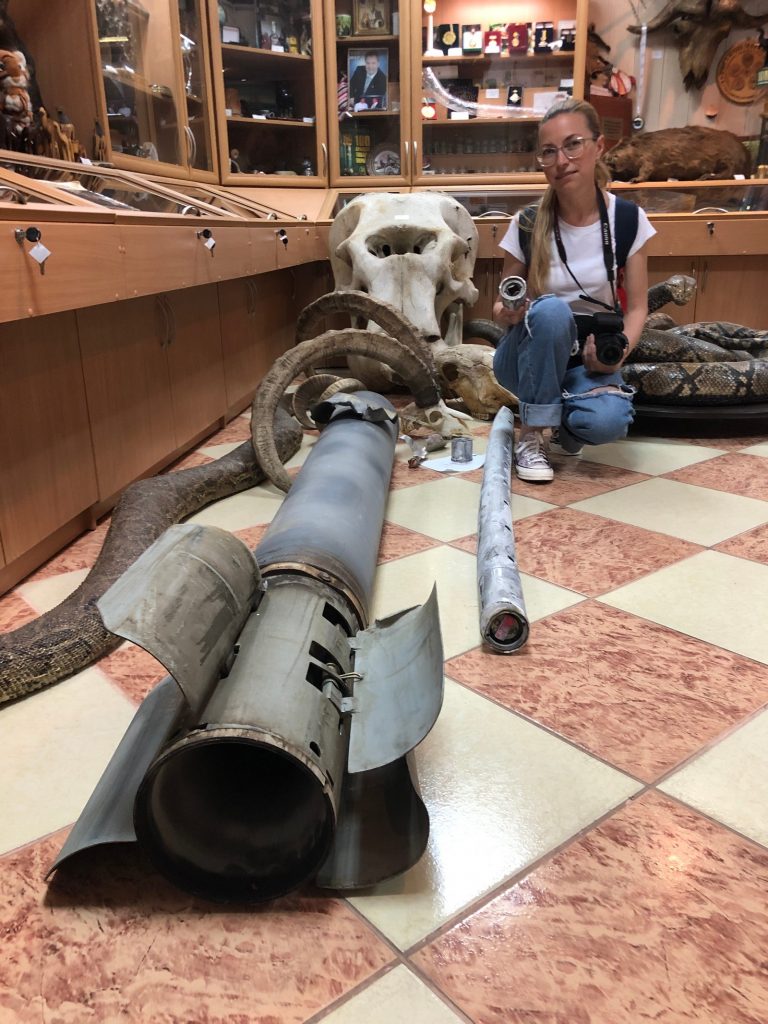
Won a Grant to Prevent Journalists from Leaving the Profession.
With the onset of full-scale war, it became evident that the media industry, especially in regional areas, would face a survival challenge. Many journalists would lose their jobs as advertising budgets vanished, along with government and local funding. To navigate this, TAK TV partnered with the “Mykolayiv Press Club” to secure grant funding. They obtained financial support through a project competition by the U.S. Embassy in Ukraine’s Media Development Fund and the “Mykolayiv Press Club.” This initiative aimed to create content produced by journalists from Mykolaiv and its region who had lost their jobs due to the war.
– “Mykolayiv Press Club,” in collaboration with our channel, entered a competition held by the U.S. Embassy and secured a grant to assist journalists. As media professionals started seeking work in unrelated fields, such as secretarial roles or manual labor, to make ends meet, we emphasized the importance of journalists working within their expertise. This initiative’s primary goal is to retain journalists in their profession, believing that it brings the most benefit to the state and society, – stated our interviewee.
Within the project, journalists can create various types of content, including text, television, and photo reports, and they receive fees for their work.
– In essence, we have created a platform that helps journalists earn a living through their professional activities, rather than seeking other forms of employment, – explains Veselovska’s idea.
The project accommodates media professionals of all backgrounds and experience levels (TV, photography, print, online) to earn through their professional work. Earnings are tied to the quantity and quality of their output, yielding surprisingly gratifying sums. The project will continue for a year until September 2023.
– I hope that thanks to this project, journalists in Mykolayiv and the region will not only survive but also witness the revival of the media industry, – says the producer of TAK TV.
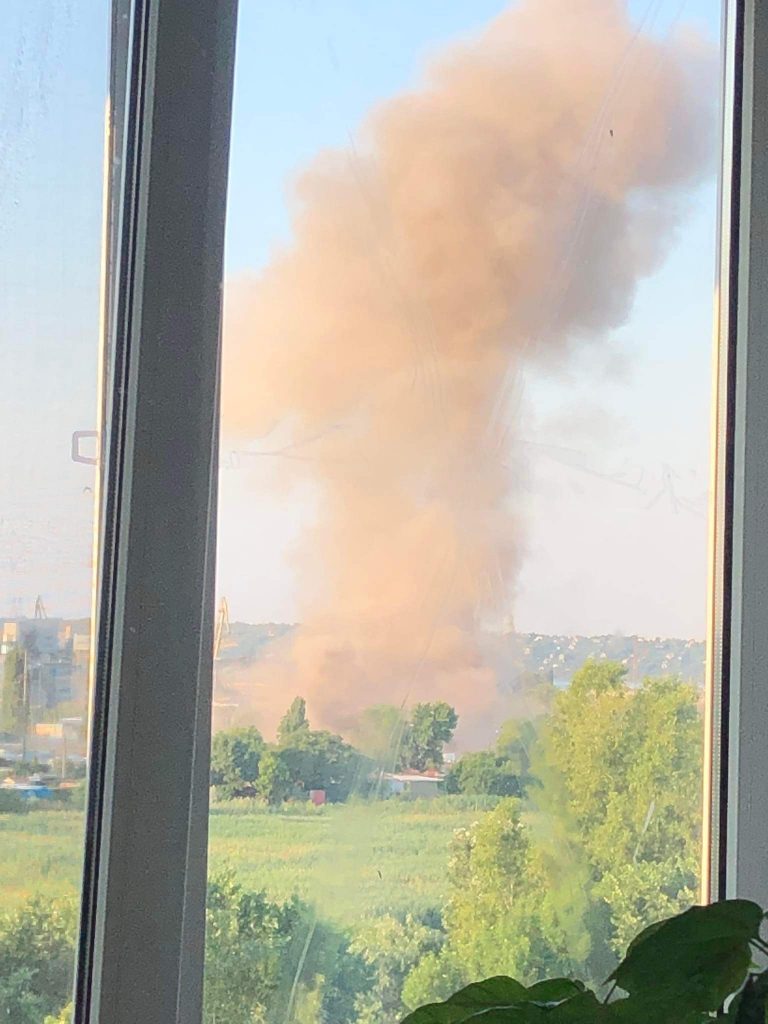
A “gift under the Christmas tree.”
TAK TV collaborates closely with the National Union of Journalists of Ukraine (NUJU), which, according to Viktoriya, provided vital support to the creative team after the onset of the full-scale war. NUJU’s assistance included project fees and support. The channel also engaged in NUJU initiatives like ‘We Are from Ukraine’ and ‘Journalists Matter.’ Notably, they received a generator just before the New Year, which now eases the impact of blackouts.
The generator is located in the channel’s office, which has become a Center for Journalistic Solidarity — colleagues can work here when needed.
Volunteering and Journalism: What Do They Have in Common?
In March of last year, the international humanitarian organization Cadena reached out to the television producer.
– They said they wanted to help the city of Mykolayiv and specifically wanted to work with me because I was recommended to them, – Viktoriya recalls.
This was one more reason why she chose not to leave the city at that time. She couldn’t abandon her volunteer friends who continued working in spite of the risks, nor the substantial humanitarian aid arriving in her name. This aid included a significant quantity of medical supplies, particularly for tactical medicine, such as first-aid kits for soldiers. The journalist wasn’t certain if the humanitarian aid would continue if she, God forbid, announced her departure from Mykolayiv. Furthermore, it was difficult to contemplate leaving the city and the country, knowing that her military friends and her brother, who also serves in the Armed Forces of Ukraine, might require assistance.
– My volunteer and military friends’ dedication both prevented me from letting my guard down and inspired me to keep working, – she concedes. – In truth, there are numerous individuals like this in Mykolayiv. For instance, at the DOF humanitarian headquarters, where I offer assistance, volunteers adapt their work schedules to lend a hand. Some arrive before their regular jobs, while others assist after work. Volunteering has become a way of life, much like journalism.
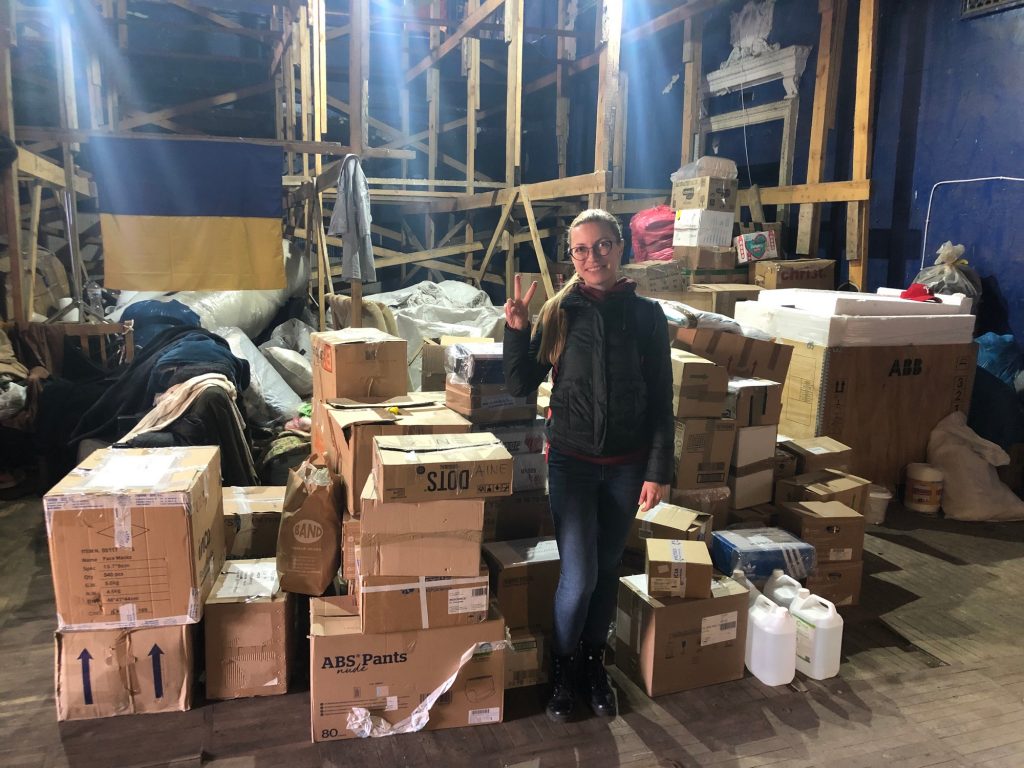
How Mykolayiv was Saved from Thirst.
One of the major survival challenges in the city was when Russian forces destroyed the water pipeline in Mykolayiv in April of the previous year, cutting off the city’s centralized water supply. The people of Mykolaiv faced over a month without access to clean water. In response, volunteers from across Ukraine rallied to assist. Water was brought in by tankers from various cities, including Kropyvnytskyi and Odesa, and volunteer organizations from different regions provided bottled drinking water to the city’s residents. Additionally, many wells were drilled in Mykolaiv, and people gathered water from rivers and springs for their daily needs.
– I live near a park where there is a lake and a spring. The water from the spring is not suitable for drinking, but it was fine for domestic use. We would get water from tankers, – recalls Viktoriya Veselovska.
In May, technical water was restored through residents’ taps in Mykolayiv, addressing the drinking water problem. To ensure access to clean water, multiple artesian wells have been established in the city, some on public property. Water tankers on trolleybuses and trams are available at various locations, effectively resolving the drinking water situation in Mykolayiv.
“We’re defending Ukraine so that you don’t have to mourn or feel sorry for yourselves there.”
Following the liberation of Kherson on November 11 the previous year, Mykolayiv saw a significant influx of returning residents. The increased number of cars on the roads and more locals strolling on the central pedestrian street, Soborna Street, is a noticeable change, reflecting the city’s returning vitality.
– Sometimes you look around and wonder, is there really a war here, is Mykolayiv really close to an occupied territory? – says Viktoriya Veselovska in amazement.
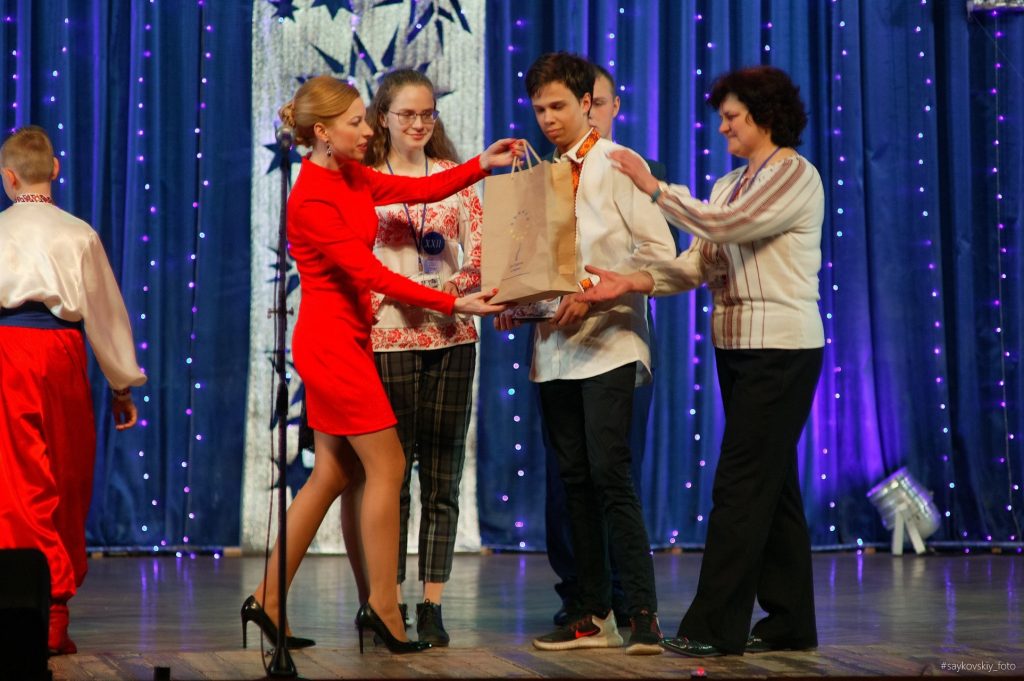
But the city is gradually coming back to life, with stores and cafes reopening. People are trying to live as they did before the full-scale war.
– My military friends say: we’re defending Ukraine so that you don’t have to mourn or feel sorry for yourselves there — you’re living, and we’re fighting here. They say: we’re fighting so that you can have a life, – concludes Viktoriya Veselovska. – And I dream of creating a top-notch piece about our Victory.
This series, titled Executed Free Speech, is created as part of a project Drawing Ukrainian And International Audience’s Attention To Serious Violations Of Human Rights And Crimes Against Journalists And Mass Media By The Russian Federation, which is performed by the National Union of Journalists of Ukraine, with support from the Swedish non-profit organization Civil Rights Defenders.
JOURNALISTS ARE IMPORTANT. Stories of Life and Work in Conditions of War is a cycle of materials prepared by the team of the NUJU with the support of the Swedish human rights organization Civil Rights Defenders.
#CRD

 THE NATIONAL UNION OF
JOURNALISTS OF UKRAINE
THE NATIONAL UNION OF
JOURNALISTS OF UKRAINE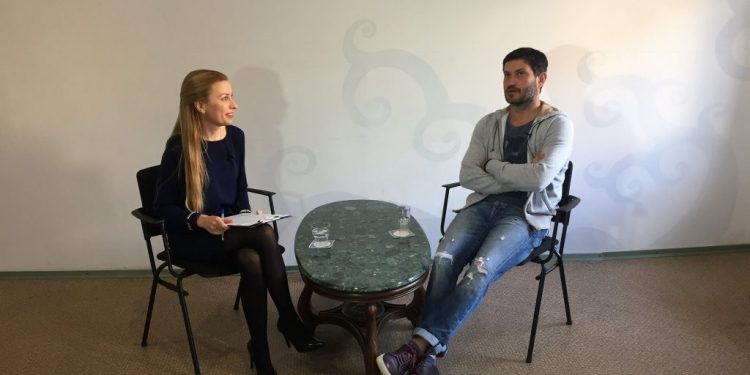
















Discussion about this post